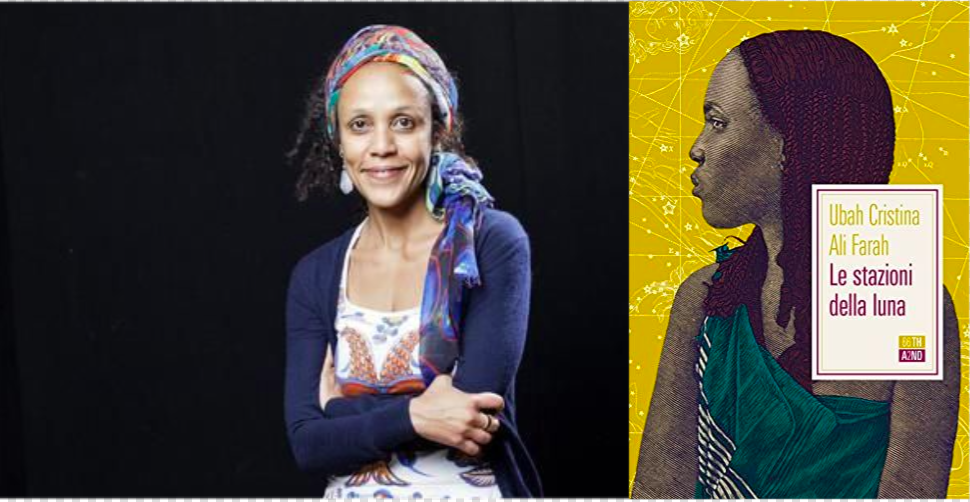Poet, novelist, playwright and oral performer Ubah Cristina Ali Farah has published her new book Le Stazioni Della Luna (The Stations of the Moon, or Phases of the Moon). Ali Farah belongs to a handful of female Somali writers currently achieving global acclaim.
Nadifa Mohamed, another such Somali immigrant author, was recently shortlisted for the Man Booker Prize for her novel The Fortune Men. Meanwhile, Ali Farah herself has received the Lingua Madre and Vittorini Prizes. She also holds a Phd in African studies, and has presented her work in many countries around the globe.
Ubah Cristina Ali Farah begins her career
Ali Farah completed her PhD at the Università L’Orientale Napoli. She then published her first novel, Madre Piccola (Little Mother), through Indiana University Press in 2007. After that, she wrote Il Comandante del Fiume (The Commander of the River) in 2014. In 2020, she released a bilingual (French and Italian) collection of short stories.
Alongside her fictional work, Ali Farah has written a book on the history of Somali folk theatre from 1940-1990. In 2018 director Giuseppe Massa took on her version of the Greek tragedy Antigone, performed in Palermo, Italy. Ali Farah has also developed a libretto from stories found in the Italian city of Matera. James Bonas directed this performance, with music composed by Nigel Osborne.
Ali Farah has received several fellowships and residencies for her writing. These include the Civitella Ranieri Foundation, La Marelle and the Stellenbosch Institute for Advanced Studies. She is currently working on a Rwandan opera, and is UNDP consultant for a project on Oral Historiography for Peace Building in Somalia.
Ubah Cristina Ali Farah: origins
Ali Farah was born in Italy to a Somali father and Italian mother. Her parents met after her father travelled to Italy to pursue his education. He then returned to Somalia, bringing his new family with him.
She grew up in Mogadishu, but was forced to flee with her baby son at the age of 18. In 1991, the country descended into civil warfare. This strife continues today. Hundreds of thousands of Somalis fled, and Ali Farah uses these experiences in her writing.
Ali Farah returned to Italy before settling in Belgium. She was left with a set of questions that her work intends to address: “‘What happens when everything you are born into has been destroyed? What do you do to root yourself again? What do you do to survive?'” she asks.
The Phases of the Moon by Ubah Cristina Ali Farah

Ali Farah’s work attempts to reckon with her heritage and the trauma that entails. “Telling stories about Somalia was for me an act of reconciliation, a way to come to terms with a painful collective history,” she says.
With the Somali language only becoming codified 50 years ago, Somalia is steeped in a rich oral tradition and poetry. Ali Farah draws from this, combining the rhythms of Somali with her mother tongue, Italian. Of her short story A Dhow Crosses the Sea, she says she is ‘trying to interlock the two countries’ histories, to put together two worlds that apparently were separated.’
Her latest novel Le Stazioni Della Luna (The Phases of the Moon)takes place in the 1950s, when Somalia was under a UN trusteeship. It treats the struggle for independence, and takes inspiration from Nuruddin Farah (no relation), the godfather of the Somali novel. Ali Farah names her main character “Elba” after the protagonist in Nuruddin Farah’s internationally acclaimed From A Crooked Rib (1970). “Literature is a dialogue with other texts and novels,” she says.
Purchase The Phases of the Moon by Ubah Cristina Ali Farah here, or the kindle version here.



